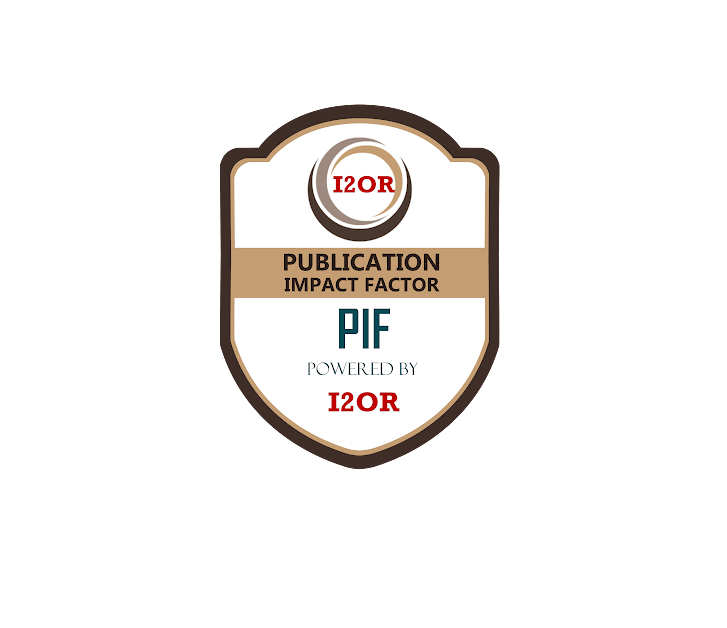A UTILIZAÇÃO DE TREINAMENTO COM OCLUSÃO VASCULAR COMO REABILITAÇÃO A INDIVÍDUOS QUE SOFRERAM RUPTURA NO LIGAMENTO CRUZADO ANTERIOR (LCA): UMA REVISÃO SISTEMATIZADA
DOI:
https://doi.org/10.53612/recisatec.v3i10.318Palavras-chave:
Treinamento, Oclusão vascular, reabilitação, Ligamento cruzado anteriorResumo
O treinamento com oclusão vascular se encontra numa constante crescente no que diz respeito a estudos acadêmicos acerca da técnica, devido à sua popularização nos últimos anos, tanto no âmbito visando hipertrofia quanto como tratamento de recuperação para indivíduos com lesão articular. Outro tema que acumula pesquisas na área da saúde é relativo à reabilitação de ruptura do LCA, trauma sofrido por praticantes esportivos. O presente estudo tem como objetivo mapear o que se tem produzido cientificamente sobre a utilização de treinamento com oclusão vascular na reabilitação de indivíduos com ruptura de LCA. Uma pesquisa sistemática foi realizada nos dias 25 e 26 de maio de 2023, para o escopo desta investigação foi utilizada a base de dados da PubMed, alguns termos foram utilizados para a composição da string utilizada na busca: Vascular occlusion training, rehabilitation" AND "anterior cruciate ligament. Sinônimos foram consultados na literatura para compor a string de busca. A pesquisa bibliográfica resultou em um total de 39 estudos. Na sequência, 20 estudos foram excluídos durante a revisão de títulos, 6 retirados após a leitura do resumo, restando 13 artigos completos para a avaliação da elegibilidade. Os resultados comprovam que o método é de fato eficaz, desde que aplicado aos exercícios corretos, em consonância à pressurização ideal para o membro do utente e carga. Comprovou-se que o treinamento com oclusão vascular a indivíduos submetidos à reconstrução de LCA apresenta resultados positivos aos utentes, respeitando 80% de restrição do fluxo sanguíneo executados exercícios de até 30% de 1 RM.
Downloads
Referências
AMATUZZI, M. M.; ALBUQUERQUE, R. F. D. M.; AMATUZZI, M. L.; SASAKI, S. U. O tratamento cirúrgico é imperativo na lesão do ligamento cruzado anterior? Há lugar para o tratamento conservador?. Revista Brasileira de Ortopedia, v. 42, p. 231-236, 2007. DOI: https://doi.org/10.1590/S0102-36162007000800001
ARCIERO, L. R. A.; SCOVILLE, L. C. R.; SNYDER, R. J.; UHORCHAK, L. J. M.; TAYLOR, M. D. C.; HUGGARD, M. D. J. Single versus two-incision arthroscopic anterior cruciate ligament reconstruction. Arthroscopy: The Journal of Arthroscopic & Related Surgery, v. 12, n. 4, p.462-469, 1996. DOI: https://doi.org/10.1016/S0749-8063(96)90041-9
ARLIANI, G. G.; PEREIRA, V. L.; LEÃO, R. G.; LARA, P. S.; EJNISMAN, B.; COHEN, M. (2019). Tratamento das lesões do ligamento cruzado anterior em jogadores profissionais de futebol por cirurgiões ortopedistas. Revista Brasileira de Ortopedia, v. 54, n. 6, p.703-708, 2019. DOI: https://doi.org/10.1055/s-0039-1697017
BENJAMIN, M.; RALPHS, J. R. Invited Review Tendons and ligaments-an overview. Histol. Histopathol, v. 12, n. 4, p. 1135-1144, 1997.
BROWN, M. J.; CARTER, T. ACL allograft: advantages and when to use. Sports medicine and arthroscopy review, v. 26, n. 2, p. 75-78. 2018. Doi: 10.1097/JSA.0000000000000194. DOI: https://doi.org/10.1097/JSA.0000000000000194
CRAWFORD, C., KAINER, M., JERNIGAN, D., BANERJEE, S., FRIEDMAN, C., AHMED, F., & ARCHIBALD, L. K. Investigation of postoperative allograft-associated infections in patients who underwent musculoskeletal allograft implantation. Clinical infectious diseases, v. 41, n. 2, p.195-200, 2005. Doi: https://doi.org/10.1086/430911. DOI: https://doi.org/10.1086/430911
CURRAN, M. T.; BEDI, A.; MENDIAS, C. L.; WOJTYS, E. M.; KUJAWA, M. V.; PALMIERI-SMITH, R. M. Blood flow restriction training applied with high-intensity exercise does not improve quadriceps muscle function after anterior cruciate ligament reconstruction: a randomized controlled trial. The American Journal of Sports Medicine, v. 48, n. 4, p.825-837, 2020. Doi: https://doi10.1177/0363546520904008. DOI: https://doi.org/10.1177/0363546520904008
DE MELO, R. F. V.; KOMATSU, W. R.; DE FREITAS, M. S.; DE MELO, M. E. V.; COHEN, M. Comparison of quadriceps and hamstring muscle strength after exercises with and without blood flow restriction following anterior cruciate ligament surgery: a randomized controlled trial. Journal of Rehabilitation Medicine, v. 54, 2022. Doi: https://doi10.2340/jrm.v54.2550. DOI: https://doi.org/10.2340/jrm.v54.2550
ERIKSSON, K.; ANDERBERG, P.; HAMBERG, P.; OLERUD, P.; WREDMARK, T. There are differences in early morbidity after ACL reconstruction when comparing patellar tendon and semitendinosus tendon graft: a prospective randomized study of 107 patients. Scandinavian journal of medicine & science in sports, v. 11, n. 3, p.170-177, 2001.
GUIMARÃES, B. M.; ALVES, R. R.; LOPES, L. C. C. (2020). Aplicabilidade do treinamento com oclusão vascular para incremento de hipertrofia e força muscular: estudo de revisão. International Journal of Movement Science and Rehabilitation, v. 2, n. 1, p.4-15, 2020. DOI: https://doi.org/10.37951/.2020v2i1.p4-15
HANSON, B., NORM, A. Exercícios aquáticos terapêuticos. 1 ed. Barueri: Manole, 2018
HUGHES, L.; PATON, B.; HADDAD, F.; ROSENBLATT, B.; GISSANE, C.; PATTERSON, S. D. Comparison of the acute perceptual and blood pressure response to heavy load and light load blood flow restriction resistance exercise in anterior cruciate ligament reconstruction patients and non-injured populations. Physical Therapy in Sport, v. 33, p. 54-61, 2018. DOI: https://doi.org/10.1016/j.ptsp.2018.07.002
Doi: https://doi10.1016/j.ptsp.2018.07.002.
HUGHES, L.; PATTERSON, S. D.; HADDAD, F.; ROSENBLATT, B.; GISSANE, C.; MCCARTHY, D.; PATON, B. Examination of the comfort and pain experienced with blood flow restriction training during post-surgery rehabilitation of anterior cruciate ligament reconstruction patients: A UK National Health Service trial. Physical Therapy in Sport, v. 39, p. 90-98, 2019. DOI: https://doi.org/10.1016/j.ptsp.2019.06.014
DOI: https://doi10.1016/j.ptsp.2019.06.014.
HUGHES, L.; ROSENBLATT, B.; HADDAD, F.; GISSANE, C.; MCCARTHY, D.; CLARKE, T.; PATTERSON, S. D. Comparing the effectiveness of blood flow restriction and traditional heavy load resistance training in the post-surgery rehabilitation of anterior cruciate ligament reconstruction patients: A UK national health service randomised controlled trial. Sports Medicine, v. 49, p. 1787-1805, 2019. DOI: https://doi.org/10.1007/s40279-019-01137-2. DOI: https://doi.org/10.1007/s40279-019-01137-2
ITO, C. B.; SCHNEIDER, L. C. L.; MASSUDA, E. M.; BERTOLINI, S. M. M. G. Causas, consequências e tratamento da osteoartrite do joelho e quadril: revisão sistemática. Arquivos do MUDI, v. 23, n. 3, p. 455-466, 2019. DOI: https://doi.org/10.4025/arqmudi.v23i3.51570
JÚNIOR, S. Recuperação fisioterapêutica pós cirúrgica de reconstrução do ligamento cruzado anterior: benefícios dos exercícios em cadeia cinética fechada, 2020.
KACIN, A.; DROBNIČ, M.; MARŠ, T.; MIŠ, K.; PETRIČ, M.; WEBER, D.; PIRKMAJER, S. Functional and molecular adaptations of quadriceps and hamstring muscles to blood flow restricted training in patients with ACL rupture. Scandinavian journal of medicine & science in sports, v. 31, n. 8, p.1636-1646, 2021. Doi: https://doi10.1111/sms.13968 DOI: https://doi.org/10.1111/sms.13968
KAEDING, C. C.; AROS, B.; PEDROZA, A.; PIFEL, E.; AMENDOLA, A.; ANDRISH, J. T.; SPINDLER, K. P. Allograft versus autograft anterior cruciate ligament reconstruction: predictors of failure from a MOON prospective longitudinal cohort. Sports health, v. 3, n. 1, p.73-81, 2011. DOI: https://doi.org/10.1177/1941738110386185
Doi: https://doi10.1177/1941738110386185
KILGAS, M. A.; LYTLE, L. L.; DRUM, S. N.; ELMER, S. J. Exercise with blood flow restriction to improve quadriceps function long after ACL reconstruction. International journal of sports medicine, v. 40, n. 10, p.650-656, 2019. Doi: https://doi10.1111/sms.13968. DOI: https://doi.org/10.1055/a-0961-1434
KONG, D. H.; JUNG, W. S.; YANG, S. J.; KIM, J. G.; PARK, H. Y.; KIM, J. Effects of Neuromuscular Electrical Stimulation and Blood Flow Restriction in Rehabilitation after Anterior Cruciate Ligament Reconstruction. International Journal of Environmental Research and Public Health, v. 19, n. 22, p.15041, 2022. Doi: https://doi10.3390/ijerph192215041 DOI: https://doi.org/10.3390/ijerph192215041
LESIÓN DEL LIGAMENTO CRUZADO ANTERIOR (LCA). National Library of Medicine. MedlinePlus. Estados Unidos da América, 2022. Disponível em: https://medlineplus.gov/spanish/ency/article/001074.htm. Acesso em: 16 maio 2023.
LESÕES DO LIGAMENTO CRUZADO ANTERIOR (LCA) (Anterior Cruciate Ligament (ACL) Injuries). American Academy of Orthopedic Surgeons. OrthoInfo. Estados Unidos da América, 2015. Disponível em: https://bit.ly/3rk9UQG. Acesso em: 16 maio 2023.
LI, X.; LI, J.; QING, L.; WANG, H.; MA, H.; HUANG, P. Effect of quadriceps training at different levels of blood flow restriction on quadriceps strength and thickness in the mid-term postoperative period after anterior cruciate ligament reconstruction: a randomized controlled external pilot study. BMC Musculoskeletal Disorders, v. 24, n. 1, p.360, 2023. Doi: https://doi10.1186/s12891-023-06483-x. DOI: https://doi.org/10.1186/s12891-023-06483-x
LIXANDRÃO, M. E.; UGRINOWITSCH, C.; LAURENTINO, G.; LIBARDI, C. A.; AIHARA, A. Y.; CARDOSO, F. N.; ROSCHEL, H. Effects of exercise intensity and occlusion pressure after 12 weeks of resistance training with blood-flow restriction. European journal of applied physiology, v. 115, p.2471-2480, 2015. Doi: https://doi10.1007/s00421-015-3253-2 DOI: https://doi.org/10.1007/s00421-015-3253-2
LIZZI, L.; DA SILVA, G. L.; EBERHARD, K.; SARTORI, M. R.; BAGNARA, I. C. Exercícios de contração isométrica para recuperação pós-operatória do ligamento cruzado anterior. EFDeportes.com, Revista Digital. Buenos Aires, Año 16, n. 160, Septiembre de 2011.
LOENNEKE, J. P.; PUJOL, T. J. The use of occlusion training to produce muscle hypertrophy. Strength & Conditioning Journal, v. 31, n. 3, p.77-84, 2009. DOI: https://doi.org/10.1519/SSC.0b013e3181a5a352
DOI: https://doi10.1519/SSC.0b013e3181a5a352.
LOENNEKE, J. P.; THIEBAUD, R. S.; ABE, T.; BEMBEN, M. G. Blood flow restriction pressure recommendations: the hormesis hypothesis. Medical hypotheses, v. 82, n. 5, p.623-626, 2014. DOI: https://doi.org/10.1016/j.mehy.2014.02.023
DOI: https://doi10.1016/j.mehy.2014.02.023
LOENNEKE, J. P.; WILSON, G. J.; WILSON, J. M. A mechanistic approach to blood flow occlusion. International journal of sports medicine, v. 31, n. 1, p.1-4, 2009. DOI: https://doi.org/10.1055/s-0029-1239499. DOI: https://doi.org/10.1055/s-0029-1239499
NAKAJIMA, T.; KURANO, M.; IIDA, H.; TAKANO, H.; OONUMA, H.; MORITA, T.; NAGATA, T. Use and safety of KAATSU training: results of a national survey. International journal of KAATSU training research, v. 2, n. 1, p.5-13, 2006. DOI: https://doi.org/10.3806/ijktr.2.5. DOI: https://doi.org/10.3806/ijktr.2.5
NAKAJIMA, T.; MORITA, T.; SATO, Y. (2011). Key considerations when conducting KAATSU training. International Journal of KAATSU Training Research, v. 7, n. 1, p.1-6, 2011. DOI: https://doi.org/10.3806/ijktr.7.1. DOI: https://doi.org/10.3806/ijktr.7.1
NASCIMENTO, D. DA C. Exercício físico com oclusão vascular: métodos para a prescrição segura na prática clínica. São Paulo: Blucher, p. 76, 2018. DOI: https://doi.org/10.5151/9788580393309
NORTON, K.; OLDS, T.; ALBERNAZ, N. M. F. de. Antropométrica: um livro sobre medidas corporais para o esporte e cursos da área de saúde. Porto Alegre: ArtMed, p.398, 2005.
NUNES, J. F.; DE CASTRO, J. O. M.; MARCHETTO, A.; PEREIRA, P. P. Tratamento Conservador das Lesões do LCA. Texto de apoio ao curso de Especialização Atividade Física Adaptada e Saúde. 2010. Disponível em: https://docplayer.com.br/25906650-Tratamento-conservador-das-lesoes-do-lca.html. Acesso em: 16 maio 2023.
OHTA, H.; KUROSAWA, H.; IKEDA, H.; IWASE, Y.; SATOU, N.; NAKAMURA, S. Low-load resistance muscular training with moderate restriction of blood flow after anterior cruciate ligament reconstruction. Acta Orthopaedica Scandinavica, v. 74, n. 1, p.62-68, 2003. DOI: https://doi.org/10.1080/00016470310013680
Doi: https://doi10.1080/00016470310013680.
PAIVA, J. M. A., & LOPES, L. C. C. EFEITO DO TREINAMENTO RESISTIDO COMO FERRAMENTA DE TRATAMENTO LESÃO DO LCA EM ESPORTISTAS. In Anais Colóquio Estadual de Pesquisa Multidisciplinar (ISSN-2527-2500) & Congresso Nacional de Pesquisa Multidisciplinar. p.1-2, 2021.
PEREIRA, M.; VIEIRA, N. D. S.; BRANDÃO, E. D. R.; RUARO, J. A.; GRIGNET, R. J.; FRÉZ, A. R. Tratamento fisioterapêutico após reconstrução do ligamento cruzado anterior. Acta Ortopédica Brasileira, v. 20, p.372-375, 2012. DOI: https://doi.org/10.1590/S1413-78522012000600011
PORTELA, J. P. Cinesiologia. Sobral: INTA, p.87, 2016.
PRUE, J.; ROMAN, D. P.; GIAMPETRUZZI, N. G.; FREDERICKS, A.; LOLIC, A.; CREPEAU, A.; WEAVER, A. P. Side effects and patient tolerance with the use of blood flow restriction training after ACL reconstruction in adolescents: a pilot study. International Journal of Sports Physical Therapy, v. 17, n. 3, p.347, 2022. Doi: 10.26603/001c.32479. DOI: https://doi.org/10.26603/001c.32479
RAMOS, D. C.; DA MATOS FILGUEIRA, R. F.; CORDEIRO, M. J.; DA ROCHA, P. E. C. P. Protocolos para prevenção e recuperação pós cirúrgico em pacientes com rompimento de lca. Revista Multidisciplinar do Sertão, v. 1, n. 1, p.35-46, 2019. DOI: https://doi.org/10.37115/rms.v1i1.12
RENZI, C. P.; TANAKA, H.; SUGAWARA, J. U. N. Effects of leg blood flow restriction during walking on cardiovascular function. Medicine and science in sports and exercise, v. 42, n. 4, 726, 2010. DOI: https://doi.org/10.1249/MSS.0b013e3181bdb454. DOI: https://doi.org/10.1249/MSS.0b013e3181bdb454
SAMUELSEN, B. T.; WEBSTER, K. E.; JOHNSON, N. R.; HEWETT, T. E.; KRYCH, A. J. Hamstring autograft versus patellar tendon autograft for ACL reconstruction: is there a difference in graft failure rate? A meta-analysis of 47,613 patients. Clinical Orthopaedics and Related Research®, v. 475, p.2459-2468, 2017. Doi: https://doi10.1007/s11999-017-5278-9. DOI: https://doi.org/10.1007/s11999-017-5278-9
SATO, Y. The history and future of KAATSU training. International Journal of KAATSU Training Research, v. 1, n. 1, p.1-5, 2005. DOI: https://doi.org/10.3806/ijktr.1.1. DOI: https://doi.org/10.3806/ijktr.1.1
TELFER, S.; CALHOUN, J.; BIGHAM, J.; MAND, S.; GELLERT, J.; HAGEN, M.; GEE, A. Biomechanical Effects of Blood Flow Restriction Training after ACL Reconstruction. Medicine and science in sports and exercise, v. 53, n. 1, p.115-123, 2021. DOI: https://doi.org/10.1249/MSS.0000000000002437
Doi: https://doi 10.1249/MSS.0000000000002437.
TSAI, L. C.; MCLEAN, S.; COLLETTI, P. M.; POWERS, C. M. Greater muscle co‐contraction results in increased tibiofemoral compressive forces in females who have undergone anterior cruciate ligament reconstruction. Journal of Orthopaedic Research, v. 30, n. 12, p.2007-2014, 2007. DOI: https://doi.org/10.1002/jor.22176
DOI: https://doi10.1002/jor.22176
URRÚTIA, G.; BONFILL, X. Declaración PRISMA: una propuesta para mejorar la publicación de revisiones sistemáticas y metaanálisis. Medicina clínica, v. 135, n. 11, p.507-511, 2010. DOI: https://doi.org/10.1016/j.medcli.2010.01.015. DOI: https://doi.org/10.1016/j.medcli.2010.01.015
VAN ECK, C. F.; ILLINGWORTH, K. D.; FU, F. H. Quadriceps tendon: the forgotten graft. Arthroscopy, v. 26, n. 4, p.441-442, 2010. Doi: 10.1016/j.arthro.2010.02.021. PMID: 20362820. DOI: https://doi.org/10.1016/j.arthro.2010.02.021
WILSON, J. M.; LOWERY, R. P.; JOY, J. M.; LOENNEKE, J. P.; NAIMO, M. A. Practical blood flow restriction training increases acute determinants of hypertrophy without increasing indices of muscle damage. The Journal of Strength & Conditioning Research, v. 27, n. 11, p.3068-3075, 2013. DOI: https://doi.org/10.1519/JSC.0b013e31828a1ffa
ŽARGI, T.; DROBNIČ, M.; STRAŽAR, K.; KACIN, A. Short–term preconditioning with blood flow restricted exercise preserves quadriceps muscle endurance in patients after anterior cruciate ligament reconstruction. Frontiers in physiology, v. 9, p. 1-13, 1150, 2018. DOI: https://doi.org/10.3389/fphys.2018.01150
Downloads
Publicado
Como Citar
Licença
Copyright (c) 2023 RECISATEC - REVISTA CIENTÍFICA SAÚDE E TECNOLOGIA - ISSN 2763-8405

Este trabalho está licenciado sob uma licença Creative Commons Attribution 4.0 International License.
Os direitos autorais dos artigos/resenhas/TCCs publicados pertecem à revista RECISATEC, e seguem o padrão Creative Commons (CC BY 4.0), permitindo a cópia ou reprodução, desde que cite a fonte e respeite os direitos dos autores e contenham menção aos mesmos nos créditos. Toda e qualquer obra publicada na revista, seu conteúdo é de responsabilidade dos autores, cabendo a RECISATEC apenas ser o veículo de divulgação, seguindo os padrões nacionais e internacionais de publicação.





















































